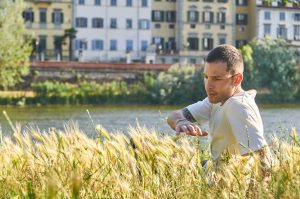 I once called our beloved Dr. MacAfee, my son’s addiction therapist, to talk about suffering: During the fourteen years of my son’s addiction, I suffered, as we all do when we see our child destroy himself and his life. At that time, I received an email from a mom in which she wrote, “You need to quit complaining about your suffering. You need to learn from it.” Although I understood the concept of learning from pain, I also felt confused and hurt. Was I not ‘allowed’ to talk about or feel the constant heartache? I needed help putting things together.
I once called our beloved Dr. MacAfee, my son’s addiction therapist, to talk about suffering: During the fourteen years of my son’s addiction, I suffered, as we all do when we see our child destroy himself and his life. At that time, I received an email from a mom in which she wrote, “You need to quit complaining about your suffering. You need to learn from it.” Although I understood the concept of learning from pain, I also felt confused and hurt. Was I not ‘allowed’ to talk about or feel the constant heartache? I needed help putting things together.
Dr. MacAfee’s responded: “Life is suffering. Until we get this concept, we can’t move on. Although days are filled with many beautiful moments, suffering is part of life. The question is not how do we live without pain, but how do we allow that pain to transform us. Suffering can be redemptive, sculpting us into better people if we let it. The problem is when we get mired in our own suffering, and resist it, then it becomes nonproductive. Acceptance of pain allows it to pass through us.”
Today’s Promise to consider: Addiction taught me that pain is both the cross and the resurrection. We all suffer, and no one is immune. Whether the pain we experience is part of the current pandemic, addiction, health issues, money problems, or a myriad of other heartaches, today I will allow it to flow through me. I will breathe deeply, not resist the hurt, and let the trauma help me to grow.

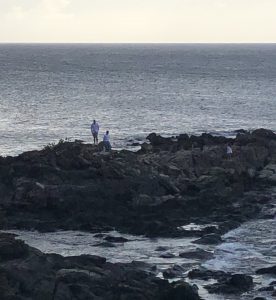 Henri Nouwen, priest, professor, and author of 39 books of the spiritual life, teaches that the great challenge in life is living through your wounds instead of thinking through them. For example, it’s better to cry than to worry, and it’s better to feel your wounds deeply than to intellectualize them. It is in our heart where we discover they will not destroy us.
Henri Nouwen, priest, professor, and author of 39 books of the spiritual life, teaches that the great challenge in life is living through your wounds instead of thinking through them. For example, it’s better to cry than to worry, and it’s better to feel your wounds deeply than to intellectualize them. It is in our heart where we discover they will not destroy us.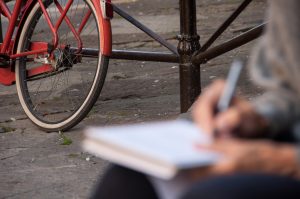 A mom wrote to me: Logically I can convince myself I have to let go and not enable my son. I know I can’t do it for him. Then at a stoplight, in the grocery store, or just sitting having coffee, it overcomes me. My tears, my fears, my anger, but most of all my loneliness for my son and all the plans and dreams he/we had. How can I keep pretending day in and out that I am fine? I feel like I’m in the middle of everyone’s anger, blame, confusion, heartache, and loss. How can I be “normal,“ strong, full of faith and hope, and calm for everyone, including me, when I can’t stop crying? How do I keep my marriage and family strong and healthy, and the rest of my life under control, when I am so afraid for my son?
A mom wrote to me: Logically I can convince myself I have to let go and not enable my son. I know I can’t do it for him. Then at a stoplight, in the grocery store, or just sitting having coffee, it overcomes me. My tears, my fears, my anger, but most of all my loneliness for my son and all the plans and dreams he/we had. How can I keep pretending day in and out that I am fine? I feel like I’m in the middle of everyone’s anger, blame, confusion, heartache, and loss. How can I be “normal,“ strong, full of faith and hope, and calm for everyone, including me, when I can’t stop crying? How do I keep my marriage and family strong and healthy, and the rest of my life under control, when I am so afraid for my son?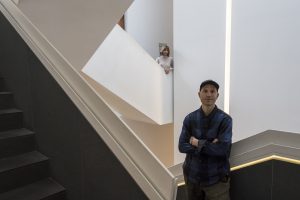 A mother wrote to me: Addiction is a humbling experience – it brings us to our knees – literally! All we can do is get down on those knees and ask God to take care of our addict, “Let Go and Let God.” We learned this the hard way because before we came to the ‘rooms’ we thought we could control it. I remember my first meeting when a wonderful lady put her arm around me and said, “You didn’t cause it, you can’t control it and you cannot cure it.” This was immediately a relief to me. Up until then I believed I had failed my son and carried so much guilt for his addiction.
A mother wrote to me: Addiction is a humbling experience – it brings us to our knees – literally! All we can do is get down on those knees and ask God to take care of our addict, “Let Go and Let God.” We learned this the hard way because before we came to the ‘rooms’ we thought we could control it. I remember my first meeting when a wonderful lady put her arm around me and said, “You didn’t cause it, you can’t control it and you cannot cure it.” This was immediately a relief to me. Up until then I believed I had failed my son and carried so much guilt for his addiction.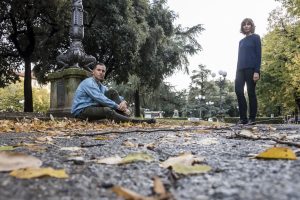 A mother wrote to me, ‘Letting go and letting God’ must have no strings attached, that is, any expectations of outcomes. Death is a very real outcome in our stories. I remember when a friend confronted me with this. Yes, it is terrifying, and I lived in fear and worry for many years, often reacting in unhealthy ways, trying to fix and control. When I realized nothing I did made my son’s situation any different and, in fact, often made things worse, I hit my bottom. I had to save myself. This did not mean I turned my back on my son. I talked with him often, but I stopped trying to determine if he was sober or if he was using. I realized that I was powerless over another human being, no matter what the situation.
A mother wrote to me, ‘Letting go and letting God’ must have no strings attached, that is, any expectations of outcomes. Death is a very real outcome in our stories. I remember when a friend confronted me with this. Yes, it is terrifying, and I lived in fear and worry for many years, often reacting in unhealthy ways, trying to fix and control. When I realized nothing I did made my son’s situation any different and, in fact, often made things worse, I hit my bottom. I had to save myself. This did not mean I turned my back on my son. I talked with him often, but I stopped trying to determine if he was sober or if he was using. I realized that I was powerless over another human being, no matter what the situation.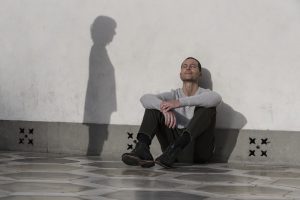 A son of alcoholic parents wrote to me: My parents struggled with alcoholism for most of their adult lives. Alcohol was a curse on my family, but we learned to “stay close” and support one another. My parents were in pain. It is not our place to judge.
A son of alcoholic parents wrote to me: My parents struggled with alcoholism for most of their adult lives. Alcohol was a curse on my family, but we learned to “stay close” and support one another. My parents were in pain. It is not our place to judge.  Our beloved Dr. MacAfee wrote, This is the simple fact: substance drives the addict. Families grow ever more dysfunctional and stressed as they try in vain to cope with the disease’s devastating impact, but most often they move into deeper levels of confusion and denial. While underestimating the severity of addiction, they are shocked and outraged and overreact believing that, somehow, they should have known from the start.
Our beloved Dr. MacAfee wrote, This is the simple fact: substance drives the addict. Families grow ever more dysfunctional and stressed as they try in vain to cope with the disease’s devastating impact, but most often they move into deeper levels of confusion and denial. While underestimating the severity of addiction, they are shocked and outraged and overreact believing that, somehow, they should have known from the start. This is my daily prayer: Dear Lord, Remove the veils so I might see what is really happening and not be intoxicated by my stories and my fears.
This is my daily prayer: Dear Lord, Remove the veils so I might see what is really happening and not be intoxicated by my stories and my fears. 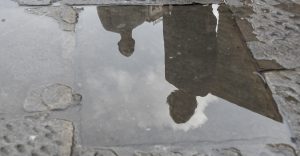 Tara Brach, Buddhist teacher and clinical psychologist, explained the Buddhist saying No Mud, No Lotus: We wake up through the circumstances of our life, and the gift is that when it gets really hard you have to dig very, very deep into your being to find some sense of where love and peace and freedom are. Freedom is our capacity to be openhearted in the midst of whatever is unfolding.
Tara Brach, Buddhist teacher and clinical psychologist, explained the Buddhist saying No Mud, No Lotus: We wake up through the circumstances of our life, and the gift is that when it gets really hard you have to dig very, very deep into your being to find some sense of where love and peace and freedom are. Freedom is our capacity to be openhearted in the midst of whatever is unfolding.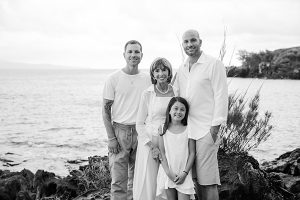 A mother wrote to me: My son is 27, in a halfway house, and on the methadone program. I don’t know how it happened. He taught himself to program in Linux as an eighth-grade student, before Linux was available on the market. He read books with thousands of pages on Solaris and other programs. As a precocious young man, at 18 he worked as a programmer and systems administrator. His skill brought in huge paychecks, which quickly became paychecks to drug dealers.
A mother wrote to me: My son is 27, in a halfway house, and on the methadone program. I don’t know how it happened. He taught himself to program in Linux as an eighth-grade student, before Linux was available on the market. He read books with thousands of pages on Solaris and other programs. As a precocious young man, at 18 he worked as a programmer and systems administrator. His skill brought in huge paychecks, which quickly became paychecks to drug dealers.
4 Comments.
View Comments | Leave a Comment